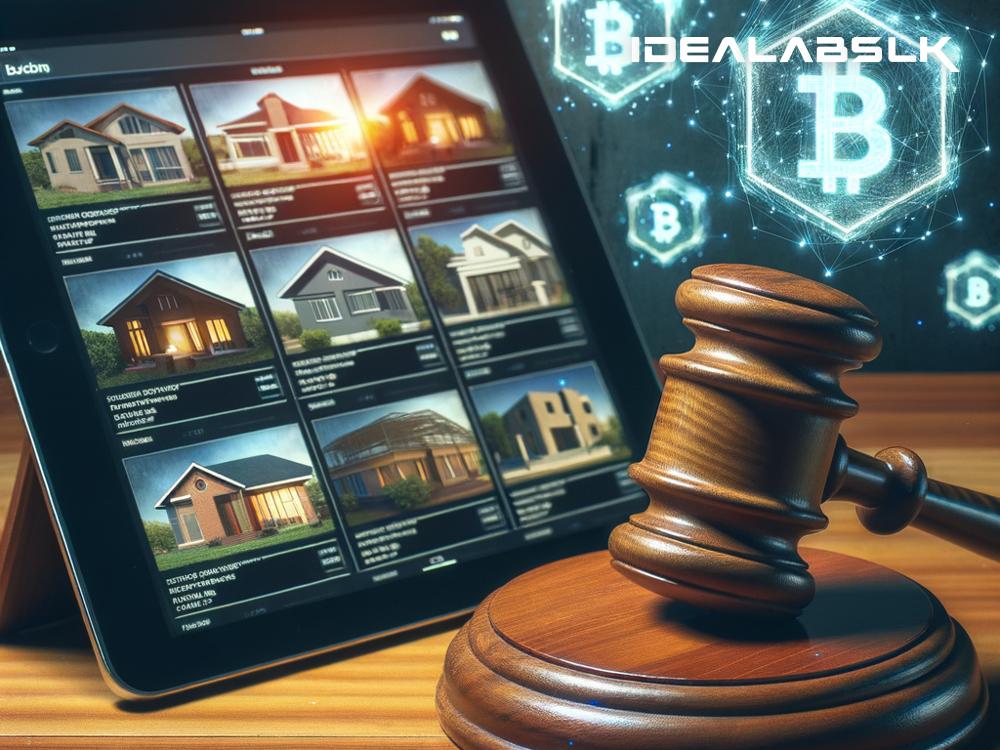How Blockchain is Changing Real Estate Property Auctions
The world of real estate is as old as the concept of owning land - however, it's undergoing a revolution, thanks to a technology called blockchain. You've probably heard of blockchain in relation to Bitcoin or other cryptocurrencies, but its application goes far beyond digital currencies. One fascinating arena where blockchain is making waves is in the realm of real estate property auctions. Let's break down how this technology is changing the game, making the process more accessible, transparent, and secure.
What is Blockchain, Anyway?
To put it simply, blockchain is a system of recording information in a way that makes it difficult or impossible to cheat, hack, or manipulate. Think of it as a digital ledger of transactions that is duplicated and distributed across the entire network of computer systems on the blockchain. Each block in the chain contains a number of transactions, and every time a new transaction occurs, a record of that transaction is added to every participant's ledger. The decentralized and immutable nature of blockchain makes it highly secure and trustworthy.
Traditional Real Estate Auctions: The Challenges
Traditional property auctions, while effective, come with their share of challenges. They can be complex, requiring lots of paperwork and the involvement of multiple intermediaries such as lawyers, real estate agents, and banks. This not only make the process lengthier but also adds to the expenses. Moreover, the lack of transparency can sometimes result in trust issues among buyers and sellers. Finally, the geographical limitations of physical auctions can restrict the pool of potential buyers.
Enter Blockchain: A Game Changer for Property Auctions
Blockchain technology is beginning to address these challenges head-on, transforming how property auctions are conducted. Here’s how:
Enhanced Transparency
One of the standout features of blockchain is its transparent nature. Every transaction is recorded on a public ledger that is accessible to all participants, ensuring a high level of transparency. In the context of property auctions, this means that all information, including bid history and property details, is available for potential buyers to see, fostering a sense of trust in the process.
Improved Security
The security of blockchain comes from its decentralized structure. Since the ledger is spread across many computers, it's nearly impossible for fraudsters to alter transaction data. This significantly reduces the risk of fraud in property transactions, making the auction process safer for both buyers and sellers.
Streamlined Process
Blockchain can automate many of the steps involved in the auction process through smart contracts. These are self-executing contracts with the terms of the agreement between buyer and seller directly written into lines of code. They automatically enforce and execute the terms of agreements, which can include making payments or transferring property titles, thereby speeding up transactions and reducing the need for intermediaries. This not only cuts down the costs associated with property auctions but also makes the process faster and smoother.
Global Participation
Blockchain-based auctions can be conducted online, opening up the property market to a global pool of buyers. This can significantly increase competition and potentially the final sale price of the property. Additionally, it offers buyers a broader range of investment opportunities, regardless of their geographic location.
Real-World Examples
Several start-ups and companies are already harnessing blockchain for real estate transactions. For instance, Propy, a global property store and decentralized title registry, operates a platform where buyers, sellers, and all other parties involved in a real estate transaction can come together on a secure blockchain network to facilitate and record the purchase. This includes everything from browsing listings to signing contracts to transferring property titles.
Looking Ahead
The integration of blockchain into real estate auctions is still in its early stages, but its potential to streamline, secure, and open up the property market is undeniable. As technology continues to evolve and more players enter the space, we can expect to see broader adoption and further innovation. For buyers, sellers, and the real estate industry as a whole, blockchain could well be the foundation of a more transparent, accessible, and efficient future.
In conclusion, blockchain technology is not just a futuristic concept. Its practical applications in real estate auctions are proving it to be a powerful tool for change, simplifying processes that were traditionally complex and barrier-ridden. For anyone involved in the buying or selling of property, keeping an eye on this evolving technology could be the key to unlocking new opportunities in the real estate market.

